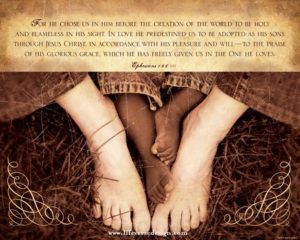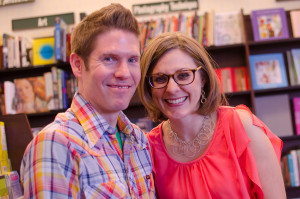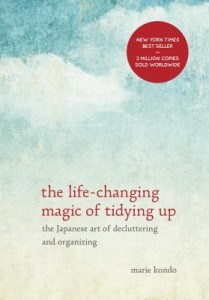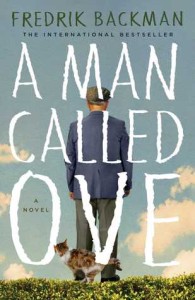
{Photo from lifeversedesign.com}
I’ve always been a little in awe (and maybe a teensy jealous) of people who have epic conversion stories. My story about coming to faith has always felt a little, well, boring. But something happened recently that completely changed my perspective.
Maybe I don’t have a quit-drugs-and-become-a-missionary-in-Africa story, but my story is no less epic. My story, in a nutshell, is this: God adopted me.
You are wanted.
Last year, two people I love dearly felt an undeniable tug on their hearts to adopt a baby. They already had two stellar kids, but they couldn’t shake the notion that their family wasn’t quite complete. That maybe God wanted to grow their family . . . and stitch it together with some different threads this time.
It would have been a lot easier to brush off the idea and stuff into the back of a closet along with the boxes of clothes their kids had outgrown.
It wasn’t practical. After all, there was a lot of paperwork involved. Home studies, red tape, profiles, interviews, bureaucracy, and more paperwork.
It was expensive. The fees were staggering—and that was to say nothing of the emotional toll.
It was an emotional roller coaster. Deciding to adopt means putting your heart on the line, setting yourself up for rejection, wondering if things will fall apart right up to the last minute. And waiting. At every stage, more waiting.
In short, adoption means opening your heart to get broken time and time again.
You are chosen.
After months of waiting, this mom and dad got the word: a birth mother had selected them! But this was only the beginning. They would have to leave their two other kids at home for a couple of weeks and then fly 2,000 miles away to finalize everything.
And even then, there was no way to be sure everything would go through. There was no guarantee that their hearts wouldn’t be broken.
But they wanted this baby. They had chosen this baby. And they were ready to fly to the ends of the earth, or least to the edge of the Rockies, to bring him home.
You are loved.
This little boy hadn’t even been born yet, and already he was loved beyond measure. His parents loved him. His big brother and sister loved him. His grandparents, aunts, uncles, cousins, and church already loved him. The prayers for him crisscrossed the nation, and he hadn’t even taken his first breath.
Finally the day came . . . the day that was the culmination of so much waiting, so many hopes, so many prayers. The papers were signed. The name was inked on the birth certificate. Everything was declared official in court.
They went home to start this new chapter, this new life, this new family of five together.
***
And that is almost precisely my story. I didn’t do anything to make my heavenly Father want me or choose me or love me. God went to great lengths and much heartache to pursue me and chase me down and bring me home, all while I was ignorant of his parental wooing.
I don’t know where you find yourself today, but this can be your story too. You may think you’re too far gone for God to take you or that you aren’t good enough or lovable enough. But he wants you. He chooses you. He loves you.
He went to extravagant lengths to get you.
He paid a scandalous price for you.
He gave you his name.
And he will bring you home.
As of now, Baby N can only coo and sleep and eat—he’s not big enough to grasp the epic drama he’s starring in. Yet already his life has given me a glimpse of God’s love—his impractical, lavish, unquantifiable, unstoppable love. The kind of love that traverses multiple time zones and reams of paperwork to make us his very own daughters and sons.
***
God decided in advance to adopt us into his own family by bringing us to himself through Jesus Christ. This is what he wanted to do, and it gave him great pleasure.
—Ephesians 1:5

 This week I’m speaking at a
This week I’m speaking at a 
 One dreary Sunday afternoon last month, when I found myself in an unaccountable funk, Daniel motioned for me to join him at the kitchen window. “I want to show you something,” he said. “You seem grumpy, and I think this will help.”
One dreary Sunday afternoon last month, when I found myself in an unaccountable funk, Daniel motioned for me to join him at the kitchen window. “I want to show you something,” he said. “You seem grumpy, and I think this will help.”
 On the day I brought home a real-live copy of
On the day I brought home a real-live copy of  Thanks to everyone who participated in our conversation about
Thanks to everyone who participated in our conversation about  If I were to pick a handful of words to describe this book, I’d have to go with quirky, endearing, and hopeful. And above all, charming. Which, when you come to think of it, are not exactly the words you might expect for a book that opens with an old man making plans to commit suicide. Despite the premise, this book had some delightfully humorous moments, and I had that pleasant kind of lump in my throat throughout the whole thing. I fell in love with curmudgeonly old Ove, and it was one of those books I couldn’t bear to finish because I wasn’t ready to say goodbye to him yet.
If I were to pick a handful of words to describe this book, I’d have to go with quirky, endearing, and hopeful. And above all, charming. Which, when you come to think of it, are not exactly the words you might expect for a book that opens with an old man making plans to commit suicide. Despite the premise, this book had some delightfully humorous moments, and I had that pleasant kind of lump in my throat throughout the whole thing. I fell in love with curmudgeonly old Ove, and it was one of those books I couldn’t bear to finish because I wasn’t ready to say goodbye to him yet.